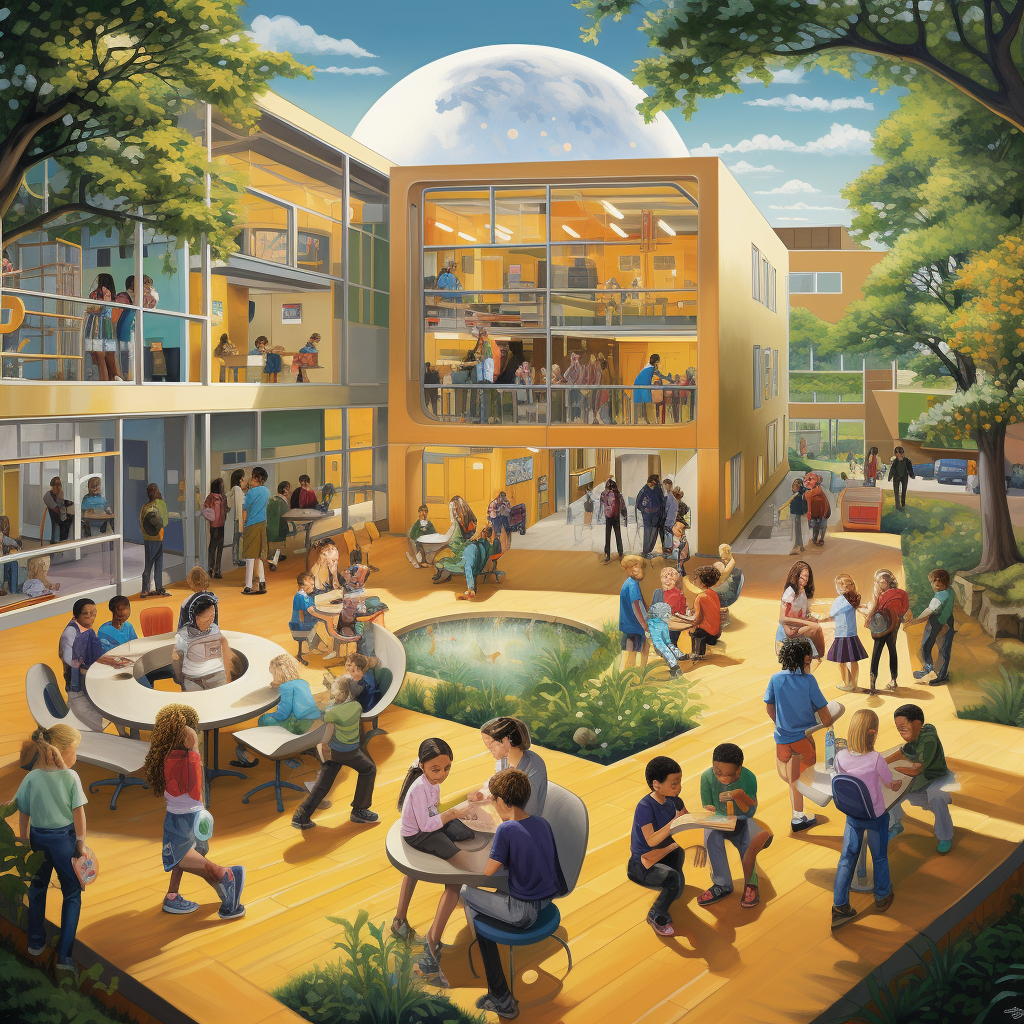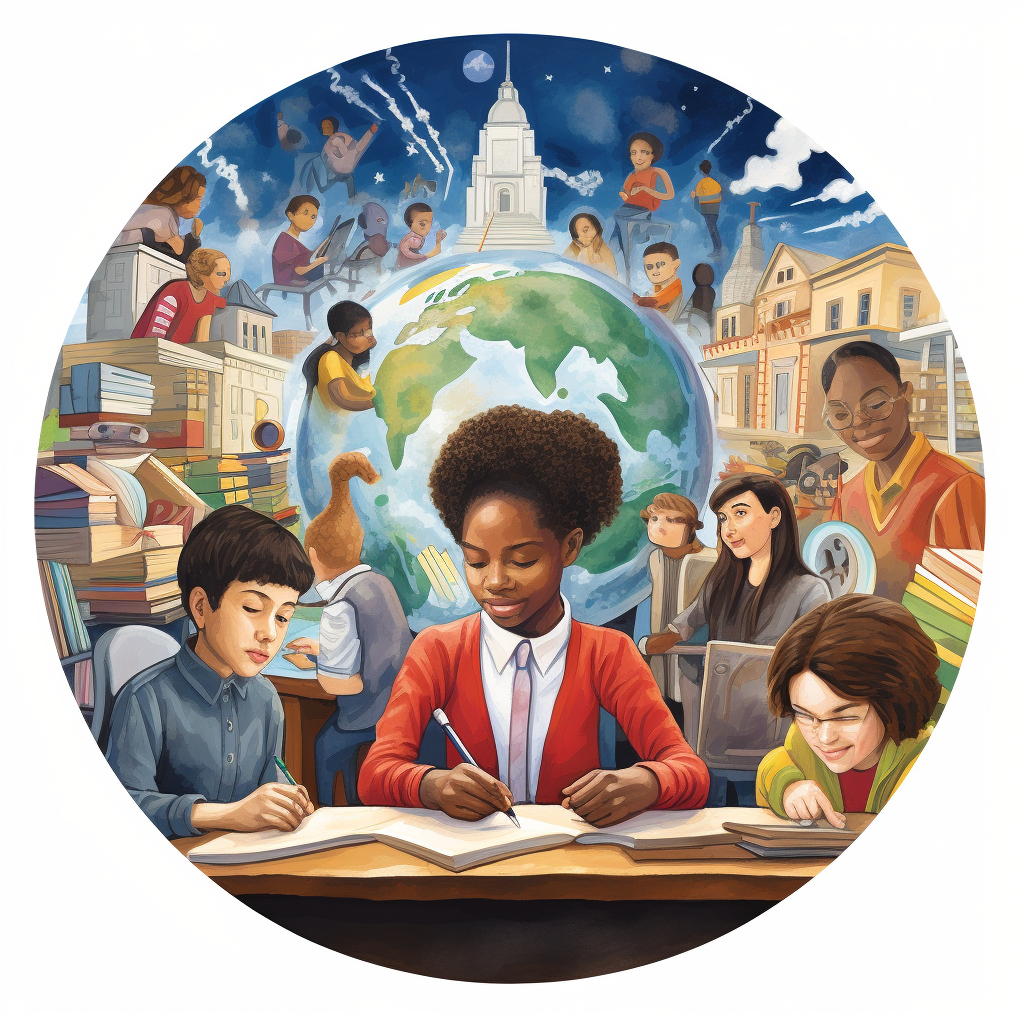Unveiling Gifted Classes: What Is It in School?
Gifted education, often encapsulated within the term 'gifted classes', refers to specially designed educational frameworks within schools that address the unique learning requirements of exceptionally talented and intellectually curious students. These classes aim to challenge and nurture young minds that demonstrate advanced cognitive abilities and a high capacity for learning compared to their age peers. In a gifted class, the curriculum is typically accelerated and enriched to provide a more rigorous and in-depth exploration of subjects. Educators who lead these classes are skilled in differentiating instruction to cater to the individual strengths and interests of gifted students, ensuring that each child's educational journey is both fulfilling and stimulating.
At Vanguard Gifted Academy, we understand that gifted learners thrive in environments that recognize and support their unique abilities. Our personalized learning approach is tailored to match each student's readiness level, incorporating STREAM (STEM + Research and Arts) to foster a comprehensive educational experience. Gifted classes at our academy are not just about academic excellence but also about promoting social-emotional learning to help students develop self-awareness and confidence, crucial traits for gifted children.
Interested in discovering how our tailored gifted classes can benefit your child? For more information or to schedule a tour, email us at gifted@vanguardgiftedacademy.org.
Characteristics of Gifted Classes in the Educational System

Gifted classes within the educational system are characterized by their specialized approach to learning that goes beyond the standard curriculum. In these settings, the pedagogy is adapted to meet the advanced learning pace and intellectual curiosity of gifted students. Educators employ a variety of teaching strategies, such as problem-based learning, independent research projects, and hands-on activities that encourage higher-order thinking skills.
Another hallmark of gifted classes is the opportunity for students to engage with complex concepts at an early age. These programs facilitate depth and complexity in learning, allowing students to delve deeply into subjects of interest and explore interdisciplinary connections. A low student-to-teacher ratio is also common, enabling personalized attention and fostering a mentorship dynamic between teacher and student.
Furthermore, gifted classes often emphasize the development of social and emotional competencies. Recognizing that gifted students may face unique social challenges, these classes provide a supportive environment where students can interact with peers who share similar abilities and interests. This peer grouping also encourages collaborative learning, where students can work together on challenging tasks, pushing each other to achieve their full potential.
Curriculum Design for Gifted Learners: Tailoring Challenges

The curriculum design for gifted learners is meticulously tailored to present challenges that match their advanced cognitive skills and learning pace. Unlike traditional curriculums that often follow a one-size-fits-all approach, gifted programs are designed to be flexible and adaptable, ensuring that each student's unique needs and interests are addressed.
An integral part of this customized curriculum is the differentiation of content. Gifted students are provided with learning materials that are more abstract, complex, and in-depth. Enrichment activities supplement the standard curriculum, offering opportunities for students to explore subjects through a different lens. This might include advanced science experiments, literature discussions that require critical thinking, and math problems that demand creative solutions.
Acceleration is another component of curriculum design for gifted learners. Students may move through traditional grade-level content at a faster pace, or skip grade levels altogether in subjects where they demonstrate exceptional aptitude. However, acceleration is carefully considered to ensure students' social and emotional readiness is aligned with their academic advancement.
Project-based learning is a cornerstone of the gifted curriculum, as it promotes autonomy and allows students to immerse themselves in topics of personal interest. Through these projects, students practice research skills, engage in scientific inquiry, and develop artistic talents, often culminating in presentations or exhibitions that showcase their comprehensive understanding and mastery.
The Role of Teachers in Gifted Education
The role of teachers in gifted education transcends traditional instruction; it requires a nuanced approach tailored to the intellectual and emotional needs of gifted learners. Gifted education teachers are not only subject matter experts but also mentors and guides who facilitate a supportive and stimulating environment for exceptional students to thrive.
Teachers in this specialized field employ a variety of strategies to engage and challenge their students. Socratic questioning is a common technique, prompting students to think deeply and critically about the material at hand. Teachers also use differentiated instruction, creating customized learning experiences that cater to each student's strengths, interests, and readiness level.
Collaboration is encouraged, allowing students to work with peers who share similar abilities and interests. This peer interaction fosters social skills and offers a space for gifted learners to be challenged by their classmates. Teachers may facilitate these collaborations through group projects, discussions, and peer-led activities.
The emotional well-being of gifted students is also a priority for their teachers. Recognizing the unique social and emotional challenges that can accompany giftedness, educators are trained to provide support and guidance. This includes helping students develop coping strategies for perfectionism, sensitivity, and asynchronous development, where a child's cognitive abilities may outpace their emotional maturity.
Ultimately, teachers in gifted education are instrumental in creating a dynamic learning atmosphere that is responsive to the advanced abilities of their students while nurturing their overall growth as individuals.
Benefits of Gifted Programs for Exceptional Students

Gifted programs offer a multitude of benefits that cater to the unique needs of exceptional students, fostering both academic prowess and personal growth. These specialized programs are designed to challenge gifted learners, enabling them to explore and realize their full potential. One of the primary advantages of such programs is the accelerated and enriched curriculum, which goes beyond the standard grade-level content to introduce more complex and in-depth material.
Another significant benefit is the opportunity for peer interaction among similarly gifted students. This social aspect can be profoundly impactful, as gifted students often feel isolated in regular classrooms. In gifted programs, they find a community of peers who share similar intellectual curiosities and abilities, which can enhance their sense of belonging and self-esteem.
Gifted programs also place a strong emphasis on critical thinking and problem-solving skills. Students are encouraged to engage with challenging concepts, ask insightful questions, and approach problems from multiple angles. This critical engagement promotes intellectual rigor and a love of learning that extends beyond the classroom.
Furthermore, these programs often provide individualized learning plans, which are essential in meeting each student's educational needs. By tailoring instruction to the student's specific strengths and interests, gifted programs help maintain academic motivation and prevent underachievement.
Lastly, gifted programs can serve as a springboard for future academic and professional success. Students who have been nurtured in an environment that values their exceptional abilities are well-equipped to tackle advanced studies and contribute meaningfully to their chosen fields.
Identifying Gifted Students: The Assessment Process

Identifying gifted students is a critical step in providing the appropriate educational environment to support their growth. The assessment process is comprehensive, involving both quantitative and qualitative measures to ensure a holistic view of a child's abilities. Standardized tests are commonly utilized to gauge intellectual aptitude and achievement levels, but they are only one part of the equation. Observations from teachers and parents, as well as evaluations of a student's creative and critical thinking abilities, are also integral to the identification process.
Assessments are designed to recognize not only advanced knowledge but also the potential for high performance. This includes looking for characteristics such as exceptional problem-solving skills, intense curiosity, and a voracious appetite for learning. Gifted programs seek to identify students who will benefit from a curriculum that is tailored to their advanced learning pace and complexity.
Vanguard Gifted Academy is committed to a thorough and sensitive assessment process to identify gifted learners. For more information or to schedule a tour, email us at gifted@vanguardgiftedacademy.org.
The goal is not only to find students who are performing at the top of their class but also those who may be underachieving due to a lack of challenge in their current environment. By using a variety of assessment tools and criteria, educators can ensure that they are capturing a diverse group of gifted students, each with their unique talents and learning styles.
Once identified, these students can be placed in an educational setting, like Vanguard Gifted Academy, that will nurture their gifts and propel them towards a trajectory of lifelong learning and achievement. To discover more about our assessment process and how it can benefit your child, please reach out to us at gifted@vanguardgiftedacademy.org.
